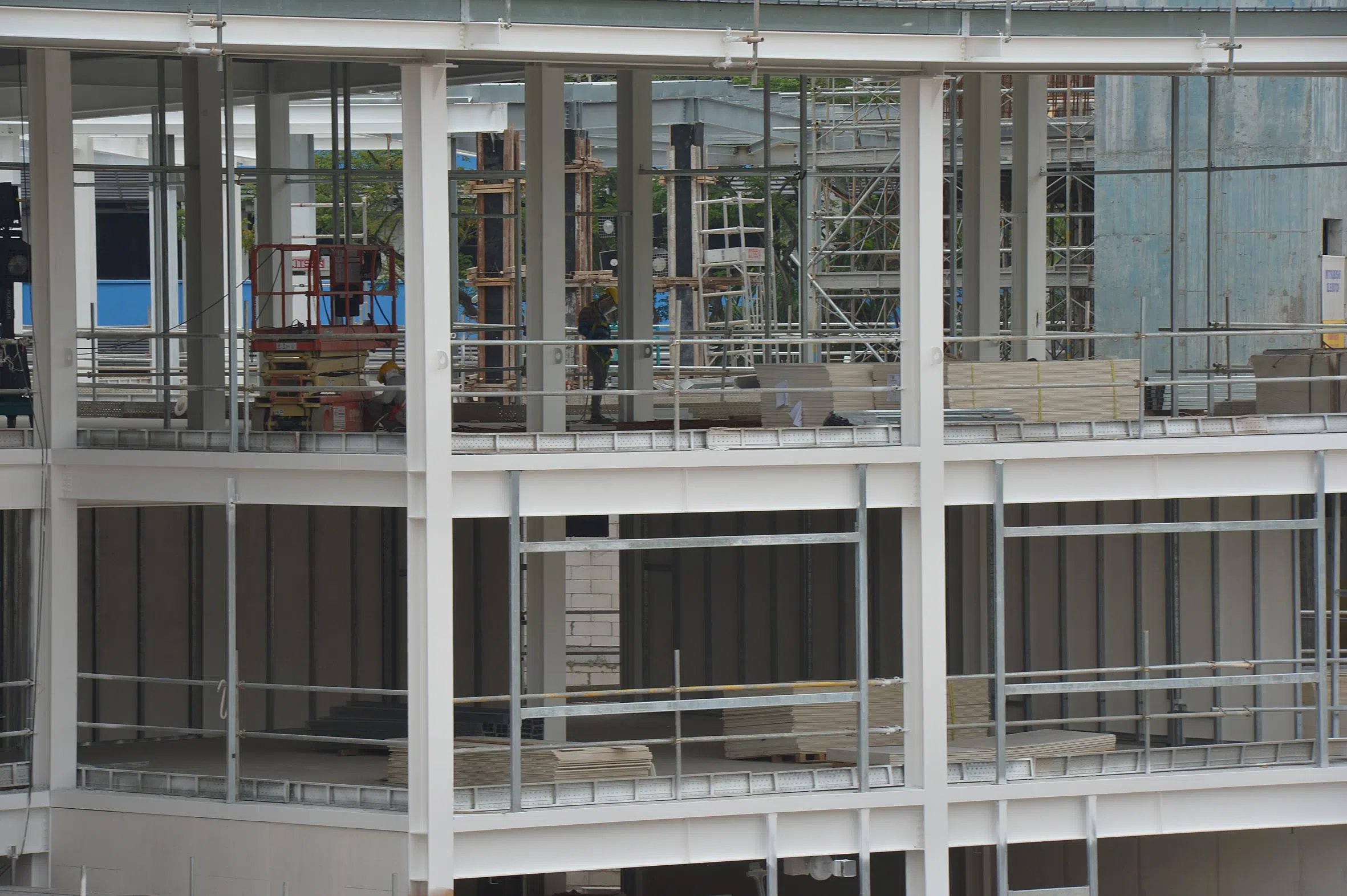THE Jumeirah hotel in London’s Knightsbridge has rooms at more than £6,000 (S$10,185) a night, with marble bathrooms, private dining rooms and panoramic views. It showcases some of the best of what London has to offer the world’s super-rich, but another city was the focus for well-heeled investors at a recent invite-only event: Abu Dhabi.
That was just one recent example of a global wealth hub pitching to the UK’s rich foreign residents amid plans by Keir Starmer’s Labour government to curb their preferential tax treatment. Known as non-doms, they range from multi-billionaires to London bankers – and are seen as up for grabs by a rising number of cities touting lower taxes and other incentives to tempt them out of Britain.
In recent months, bankers, lawyers and other professionals from Dubai, Greece and Singapore – among others – have ramped up outreach efforts to court disillusioned non-doms, people familiar with the matter said. Their approach ranges from “roadshow” events, like the one at the Dubai-owned Jumeirah, to cultivating relationships with City of London law firms. The bottom line: gauge individuals’ openness to break from the UK, the people said, asking not to be identified discussing client matters.
“A decade ago we were having large events in Mumbai, Shanghai and Singapore that just focused on coming to the UK,” said Dominic Volek, group head of private clients at migration advisory firm Henley & Partners. “Now it’s the complete reverse.”
A Cyprus government agency is co-hosting an event at the London Stock Exchange next month, aimed squarely at the UK’s roughly 75,000 non-doms, most of which are based in London. Chiomenti, one of Italy’s top law firms, sponsored a Henley & Partners event in London this month entitled: “Non-Doms: ‘Should I Stay or Should I Go?’” Both Cyprus and Italy offer tax breaks on overseas earnings for more than a decade.
The Abu Dhabi Investment Office (ADIO), a central government hub, hosted the London event along with the emirate’s financial centre ADGM, according to documents seen by Bloomberg. An external spokesperson for ADIO, as it’s known, declined to comment. An ADGM representative said the event “was part of a series of global engagements by ADGM in the US, Asia and Europe to highlight Abu Dhabi’s attractiveness as one of the fastest growing international financial centres.”
BT in your inbox
Start and end each day with the latest news stories and analyses delivered straight to your inbox.
Non-doms’ troubles started to crystallise earlier this year when Britain’s main political parties sought to close down a tax regime detractors say is an unfair perk for the wealthy by allowing them to avoid UK taxes on their overseas earnings. Its supporters point to the more than £8 billion in taxes that non-doms contribute each year, as well as a range of ancillary economic benefits, such as jobs created and philanthropy.
In March, the then-Conservative government bowed to pressure to raise funds for UK voters by requiring non-doms to pay tax on overseas earnings after living in the UK for four years, instead of the current 15. Starmer’s Labour party then pledged to go further ahead of its landslide election victory in July: Chancellor Rachel Reeves announced a new regime that kept the reduced time allowance but also seeks to bring overseas assets under UK inheritance tax, confirming the worst fears for many non-doms.
The changes, kicking in from April 2025, mark the third major reform to the UK’s non-dom regime within the past decade – and would-be rivals are seizing on the unpredictability. Cyprus’s national investment promotion agency cited the UK’s “ever-evolving” tax landscape in an invitation to its London event on Dec 4.
City of London law firms are also seeing a pick up in activity as non-doms who had hoped to stay in Britain game out their next moves. Some are reluctantly accepting the new UK reality, while others are more actively seeking out an alternative base.
“We are fielding more calls,” said Piers Master, a London-based partner who focuses on ultra-wealthy individuals at law firm Charles Russell Speechlys. “Now they can at least plan with some certainty, even though it’s a form of certainty that few of them would have wished for.”
While precise numbers on actual departures are unclear, some non-doms are already voting with their feet.
They include Nigerian-Lebanese entrepreneur Bassim Haidar, a Conservative Party donor who relocated to Greece, a nation that like Italy has introduced its own non-dom regime styled on the UK’s within the past decade. German tech investor Christian Angermayer left London this year for the Swiss city of Lugano after about a decade claiming non-dom status, and has argued the UK reforms are a “huge mistake.”
Some of those that have decided to stay – at least for now – are already pulling back. A recent survey of 115 non-doms from Oxford Economics, commissioned by lobby group Foreign Investors for Britain, found that individuals had already divested a total of £840 million from local assets ahead of the planned reforms kicking in, spanning real estate, finance and hospitality.
Elsewhere, the picture is more nuanced. Some say they plan to remain in Britain until hitting a 10-year threshold under which their global assets fall under UK inheritance tax. One tech entrepreneur claiming non-dom status, who asked not to be identified discussing tax matters, said he only plans to leave later this decade once his youngest child finishes school in London.
Such deliberations also speak to a broader point: While the financial advantages of relocating are often clear-cut, lifestyle and culture differences can cloud the decision-making process for some. The UAE can see summertime temperatures exceeding 50 degree Celsius, while those eyeing Monaco face the prospect of swapping London mansions for potentially smaller apartments. And space at the right international schools can be a challenge in several global locations.
“Rich people have choices,” said British property developer Nick Candy, one half of the sibling duo behind London’s ultra-luxury One Hyde Park development. “Covid has made everyone realise more than ever how they can be mobile with their wealth and don’t always have to live in one place.”
Switzerland, Italy and the United Arab Emirates are often seen as among the most popular alternative options for non-doms. But more far-flung territories are also looking to take advantage of the uncertainty to drum up new business.
A Panama trade agency also sponsored the Henley & Partners event, which was held in an oak-panelled room at the Ironmongers’ Hall in London. Coats of arms on the walls dated back to when the UK originally introduced its non-dom regime in the 18th century to protect colonial investments. Others scoping out new business at the gathering included an executive from one of the top private banks in Gibraltar, a British overseas territory that has no capital gains or inheritance taxes.
“Panama offers a compelling option for UK non-domiciled tax residents seeking a stable, tax-efficient jurisdiction,” said Alix Moyron, commercial director at ProPanama.
It’s not just wealthy foreigners that are considering their future in the UK. British hedge fund billionaire Alan Howard is weighing leaving London for Geneva, Bloomberg has reported. And a member of the wealthy Kamani family behind British fashion clothing giant Boohoo Group switched residency from England to the UAE earlier this year, according to UK business registry filings.
“Of our own clients leaving, the majority are highly mobile,” said Jo Eccles, founder of London-based property adviser Eccord. “Either they have adult children who have flown the nest, or no children and therefore no school ties. Or they had links to another country or region, making it a natural move or return.”
Candy, 51, made a fortune in UK property but is also now casting his eye outside its borders. He was among the attendees at the Abu Dhabi event last month at the Jumeirah Carlton Tower, a five-star hotel with almost 200 rooms owned by the sprawling conglomerate of Dubai’s ruling family. Topics for the event included sustainability and artificial intelligence.
The property investor, who has homes in London and Oxfordshire, said he now plans to spend more time in the Middle East, where he has major projects. Perhaps unsurprisingly, he is unequivocal about his home country’s relationship with its well-heeled foreign residents.
“We’re going to have the largest brain drain of talent that this country has ever seen,” he said. “And they won’t come running back.” BLOOMBERG






